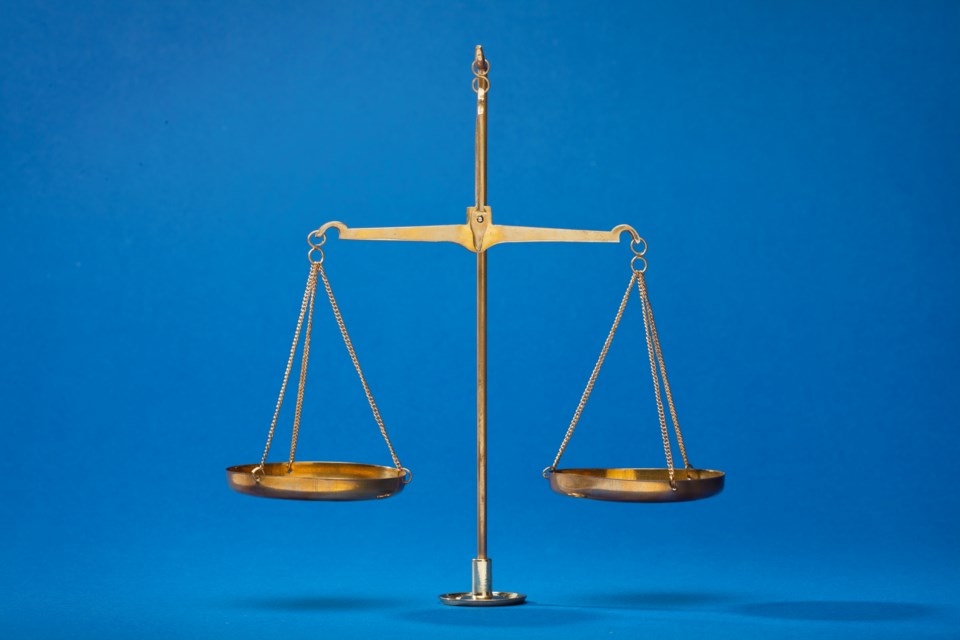A provincial court judge has dismissed a man's claimed his Charter rights were violated in the aftermath of plowing into the back of an RCMP vehicle and then trying to flee when driving while impaired.
In a decision issued Thursday, judge Cassandra Malfair found police actions were reasonable and necessary in dealing with Alfred Prudnikov on the night of Sept. 21, 2018. Prudnikov faces four counts, including impaired driving causing bodily harm, from the incident on Frenkel Road in Beaverley, west of the city.
According to Malfair's summary of the circumstances, three RCMP were in the area trying to locate a priority offender with outstanding warrants. "The situation was high risk and tense as the offender had a firearms charge and had said, when contacted by police, he would shoot police," Malfair said.
At about 11:30 p.m., two of the officers had parked their vehicles on either side of Frenkel Road and had rolled down their windows to talk to each other. Fully marked and with reflective tape and with their interior and exterior lights on, the vehicles could be easily seen and there was room enough between them for another to pass in between, Malfair said.
While in his SUV talking on his phone, one of the officers looked in his rear view mirror and noticed headlights off in the distance. He thought little of it and went back to his task at hand, but a moment later, he heard his partner yell "whoa!" and felt an impact from behind. Because he had just got back into his vehicle and was dealing with dispatch, he had not yet put on his seatbelt. "He was slammed into the steering wheel from the impact, his phone went flying and his truck was pushed forward," Malfair said and added the SUV was hit with enough force to push it three or four feet forward.
The officer who was in the struck vehicle looked back to find a small car quickly backing away from him while the engine was revving. The other officer saw Prudnikov pull a U-turn and accelerate away. In response, the officer drove into the front quarter panel of Prudnikov's car and knocked it into the ditch.
Officers initially worried he was the suspect they were looking for and that there would be a confrontation. Backup was called in and both of them drew their guns as they approached the car, from which smoke was billowing. As Prudnikov was ordered to show his hands, one of the officers could see he was not who they were looking for, but did notice a odour of liquor from the vehicle and believed they had reasonable grounds to arrest him for driving while impaired.
At issue was the time the arresting officer took between reading his Charter rights upon being arrested and issuing a demand that Prudnikov provide a breath sample. Defence counsel argued there was a 16-minute lapse between the steps based on entries in the officer's notebook. But Malfair found the final entry came after the demand was given and that the lapse was much shorter.
Malfair also noted the process of the initial arrest was slowed in part by Prudnikov's lack of identification and a long, drawn out and difficult-to-understand conversation with the accused. Malfair also found the lapse reasonable given the situation. "It is understandable that there would be some delays as they shifted from a high-risk takedown to reacting to a surprise impaired investigation and accident scene," Malfair said. "The steps taken by the officers were necessary in relation to the investigation."
Prudnikov was later found to have blood-alcohol levels of .130 and .140, well above the legal limit of .08.
Malfair's decision was in relation to a voir dire, or trial within a trial, on whether Prudnikov's Charter rights were violated. The main trial continues in May.



